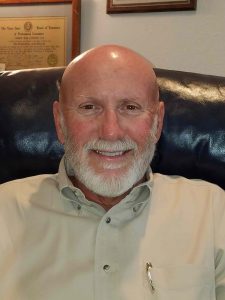Practice History:
After completing my Master’s degree in Counseling, I worked for four years providing acute care mental health services for MHMR in southern West Virginia. For the next six years, I completed the course and clinical work as a PHD candidate at the University of Tennessee. During those years, I continued to practice in the MHMR system in Morristown, Newport and Sevierville Tennessee. My husband, Larry, and I moved to Dallas so I could complete the APA internship at UTSW. I worked for a year at Children’s Medical Center (now Children’s Health), later joining a group practice in Richardson. In the fall of 1989, my husband and I opened our own practice in Richardson, where we still practice today. In the mid-nineties, I maintained a small outpatient practice while running several of the nonprofit psychiatric and substance abuse inpatient units in the dallas area, returning to full time private practice in 1998.
Services:
My practice is fairly broad in scope. I see primarily adult patients with a range of concerns including stress, anxiety, depression, relationship issues, grief, family situations and issues created by family of origin struggles. My theoretical orientation is based on human development, allowing me a way to understand people’s behavior and address problems from patient strengths. While therapy is, by definition, a process, I also focus on specific skills that allow patients to live more stable and satisfying lives. Couples therapy is a specific interest for me. I have a structured approach that considers the marital template each member of the couple brought into the relationship, how they chose each other to attempt to complete unfinished family of origin relationship issues and teaches a marital conflict resolution model that we practice in office with increasingly complex relationship issues.
Benefits:
Honestly, who couldn’t benefit from having someone to talk to who has only you or your relationship’s best interest in mind? That’s only one of the many benefits of therapy that I see. Having to organize your thoughts in a way you can communicate them to another person requires a different level of awareness than just thinking about things on your own. Understanding other’s behavior in a new way or looking at other’s intentionality helps make sense of past and present experiences. Strengthening the mind-body connection helps individuals lead healthier and more purposeful lives. Sometimes strengthening skills like the ability to self-soothe or building tolerance and resiliency can make daily life easier. Learning to identify patterns and themes in choices and relationships can allow patients to make different, potentially less, self-sabotaging choices in the future. All of these are benefits of therapy provided in a nurturing and consistent environment.


